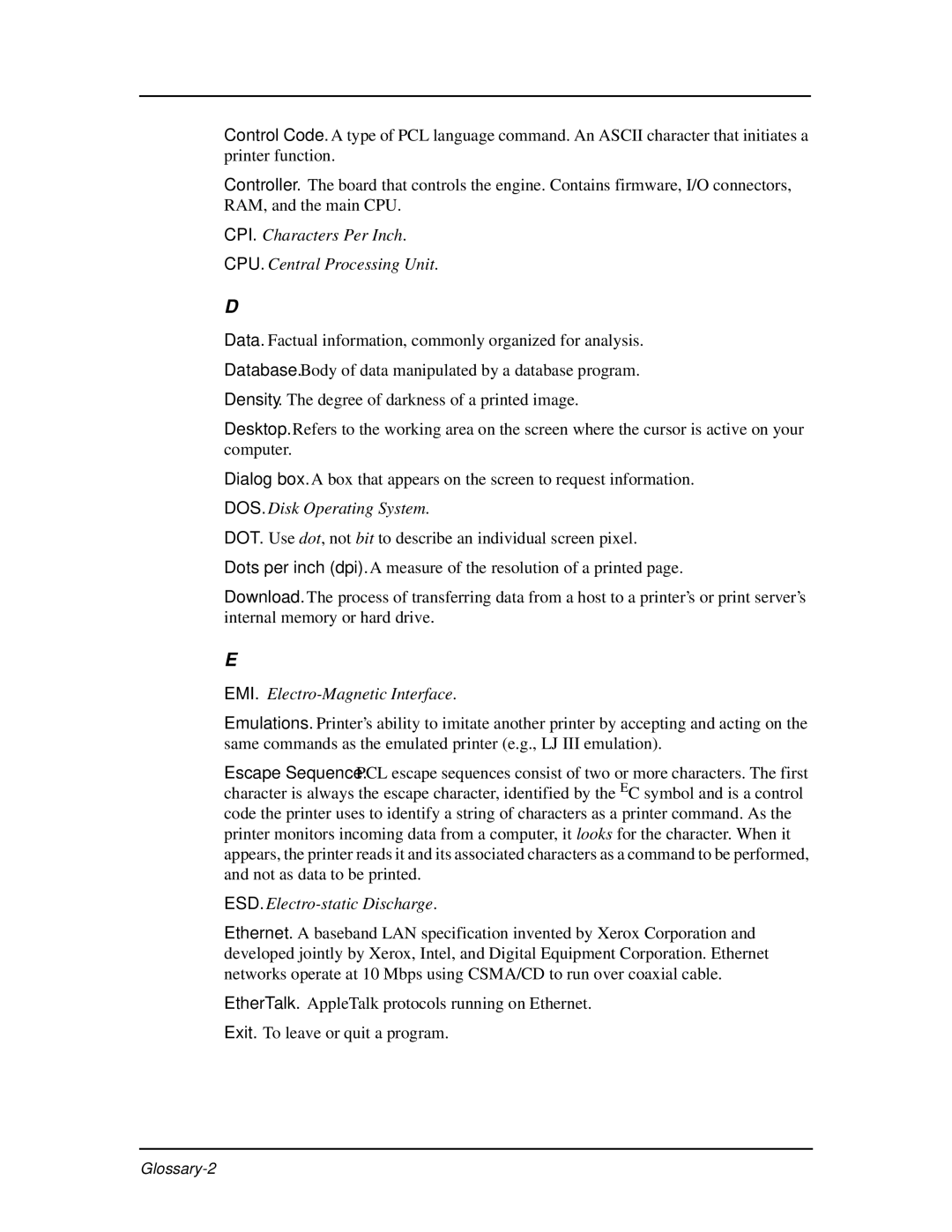
Control Code. A type of PCL language command. An ASCII character that initiates a printer function.
Controller. The board that controls the engine. Contains firmware, I/O connectors, RAM, and the main CPU.
CPI. Characters Per Inch.
CPU. Central Processing Unit.
D
Data. Factual information, commonly organized for analysis.
Database. Body of data manipulated by a database program.
Density. The degree of darkness of a printed image.
Desktop. Refers to the working area on the screen where the cursor is active on your computer.
Dialog box. A box that appears on the screen to request information.
DOS. Disk Operating System.
DOT. Use dot, not bit to describe an individual screen pixel.
Dots per inch (dpi). A measure of the resolution of a printed page.
Download. The process of transferring data from a host to a printer’s or print server’s internal memory or hard drive.
E
EMI. Electro-Magnetic Interface.
Emulations. Printer’s ability to imitate another printer by accepting and acting on the same commands as the emulated printer (e.g., LJ III emulation).
Escape Sequence. PCL escape sequences consist of two or more characters. The first character is always the escape character, identified by the EC symbol and is a control code the printer uses to identify a string of characters as a printer command. As the printer monitors incoming data from a computer, it looks for the character. When it appears, the printer reads it and its associated characters as a command to be performed, and not as data to be printed.
ESD. Electro-static Discharge.
Ethernet. A baseband LAN specification invented by Xerox Corporation and developed jointly by Xerox, Intel, and Digital Equipment Corporation. Ethernet networks operate at 10 Mbps using CSMA/CD to run over coaxial cable.
EtherTalk. AppleTalk protocols running on Ethernet.
Exit. To leave or quit a program.
